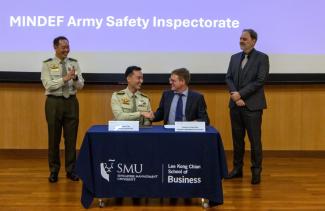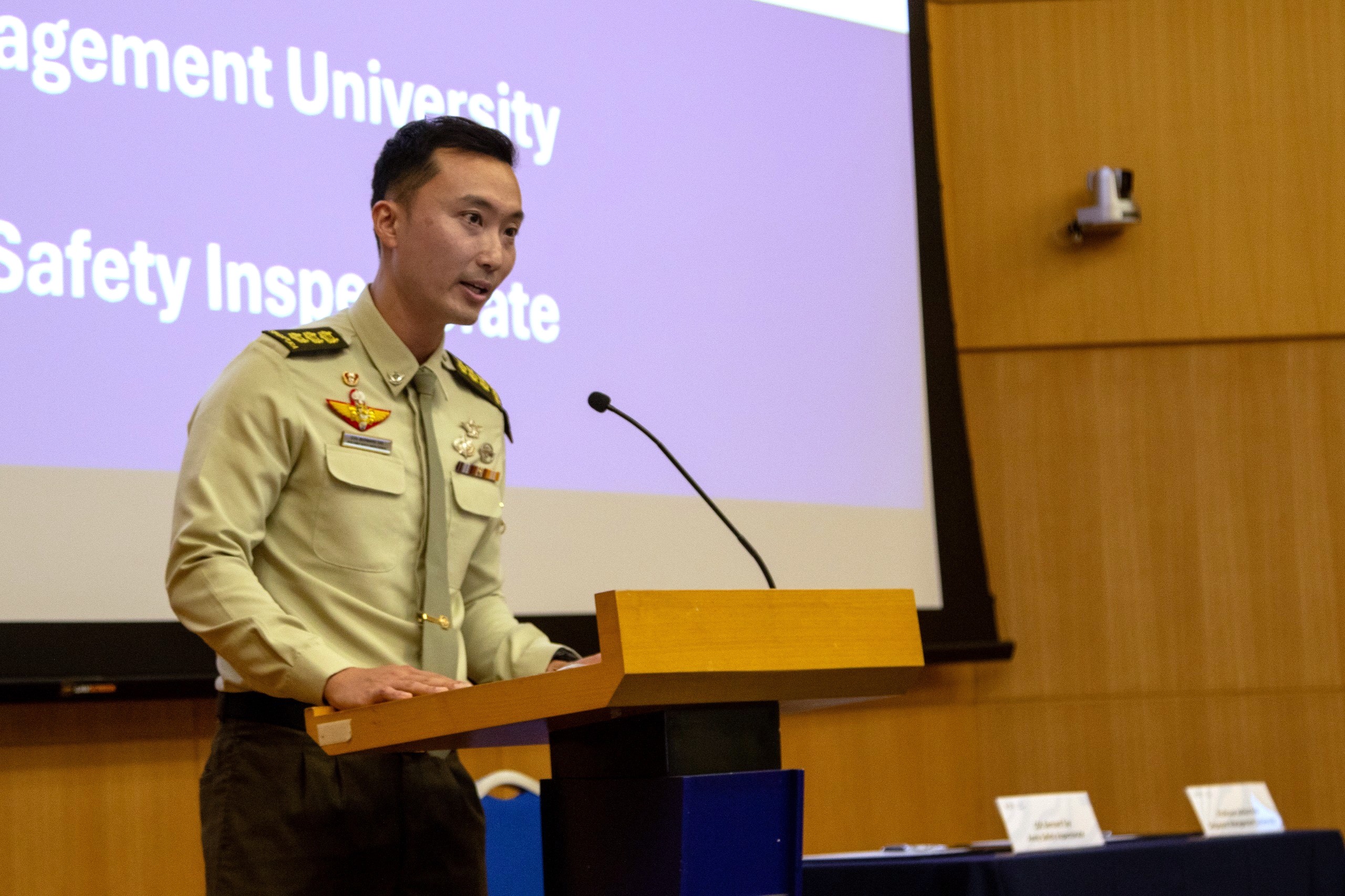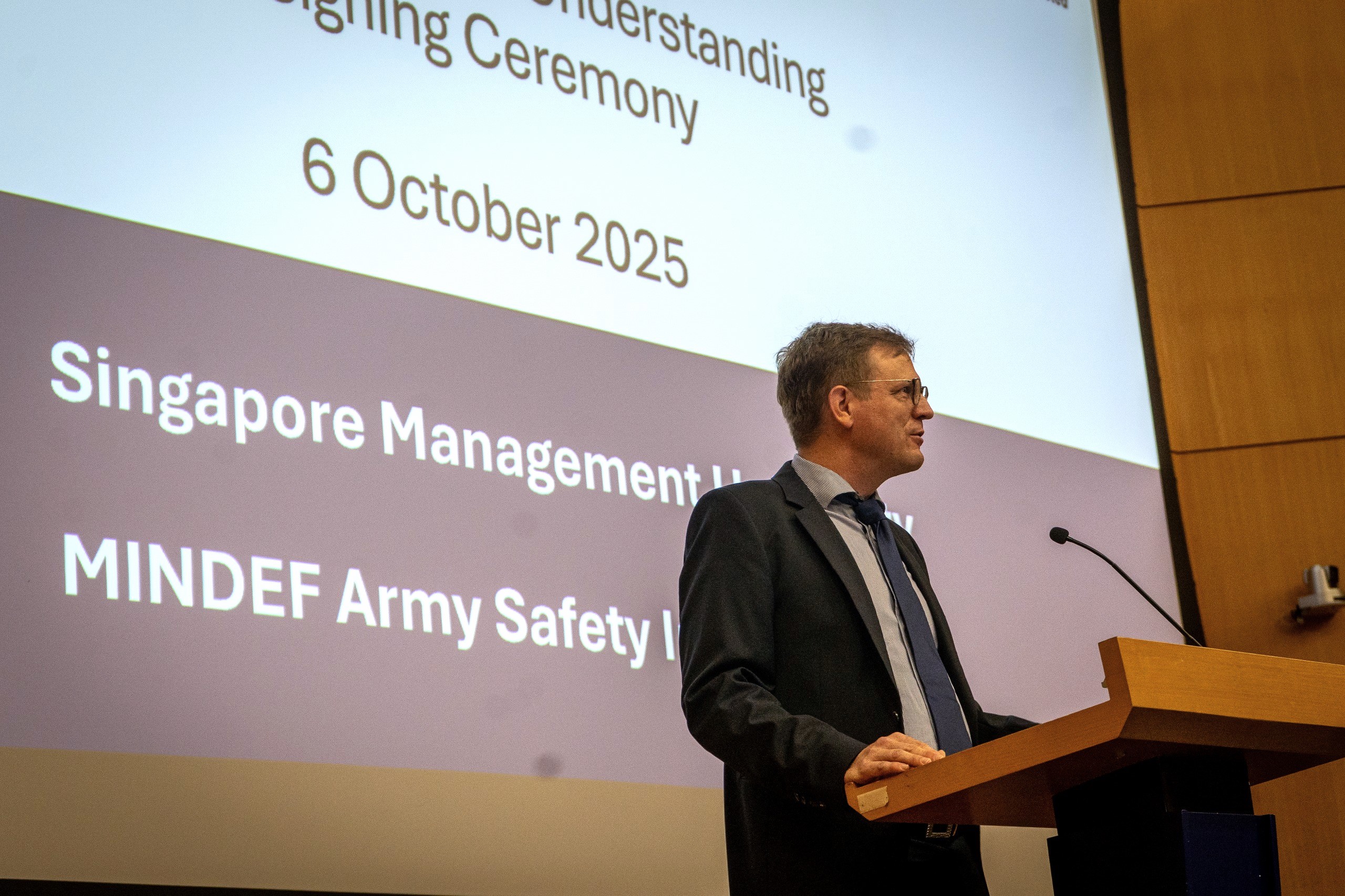
Singapore Management University (SMU) and the Ministry of Defence (MINDEF) have joined forces to collaborate in research and development focusing on psychological factors that influence safety — including mindset, mindfulness, and attention.
The partnership, which fully aligns with SMU’s vision of advancing knowledge with meaningful societal impact, focuses on psychological factors influencing safety — an area where cutting-edge research meets real-world impact.
An Memorandum of Understanding (MOU) was signed on 6 October 2025 by Professor Jochen Reb, Director of the Mindfulness Initiative @ SMU; and Colonel (COL) Bernard Tay, Head Army Safety Inspectorate. The signing was witnessed by Brigadier-General Pang Lead Shuan, Commander, Training and Doctrine Command; and Professor Bert De Reyck, Dean of the Lee Kong Chian School of Business (LKCSB).
The partnership aims to better understand the human mind and strengthen safety vigilance among soldiers.

COL Bernard Tay highlighted that “safety is ultimately about instilling the right instincts in our people, and not merely adding new measures. To be exceptional in safety, we must draw on leading research in psychology, human factors, and behavioural sciences to deepen our understanding of the human mind and keep our soldiers vigilant to safety risks.”
“With this Memorandum of Understanding, we are formalising a partnership that deepens our understanding of the human mind and how to keep our soldiers vigilant of safety risks. By uniting SMU’s expertise with our Army’s experience, we hope to gain new insights and develop innovative tools to allow our soldiers to train hard and train safe,” he added.
 Professor Jochen Reb emphasised that mindfulness-based practices, grounded in psychology and neuroscience, strengthen human awareness – a critical factor in improving safety. “Safety is a multi-faceted problem encompassing psychological, social, and technological aspects, among others. While technology can go a long way in making workplaces and the Army safer, technology alone can never provide a perfect safeguard against all accidents. The human factor matters both for safety failures as well as for preventing accidents,” he said.
Professor Jochen Reb emphasised that mindfulness-based practices, grounded in psychology and neuroscience, strengthen human awareness – a critical factor in improving safety. “Safety is a multi-faceted problem encompassing psychological, social, and technological aspects, among others. While technology can go a long way in making workplaces and the Army safer, technology alone can never provide a perfect safeguard against all accidents. The human factor matters both for safety failures as well as for preventing accidents,” he said.
The collaboration reflects a shared commitment to turning research into real-world outcomes. By combining SMU’s academic expertise with the Army’s operational experience, the partnership aims to ensure that every Singaporean soldier can train hard — and return home safely.
- End -